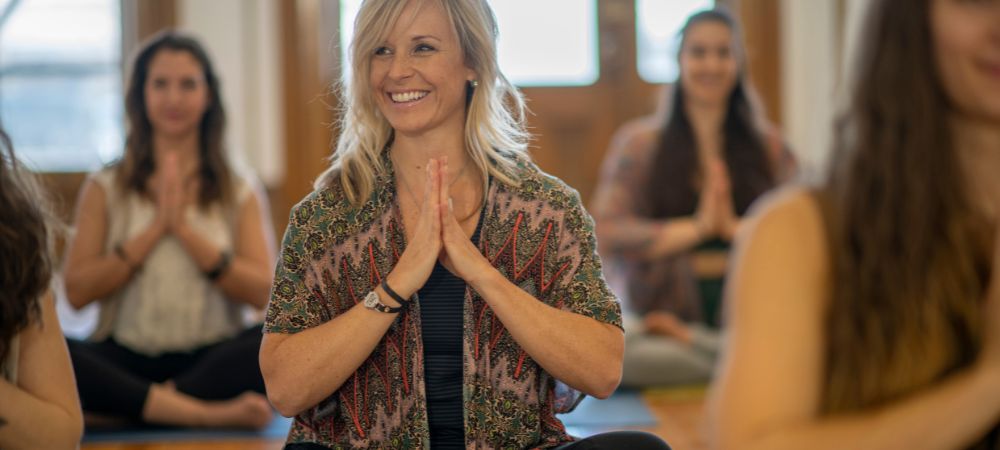Vedic yoga is a holistic practice that combines physical movements, focused breathing, and meditation to help the practitioner increase their physical, mental, and spiritual well-being. There are four main types of vedic yoga: Jnana Yoga, Karma Yoga, Raja Yoga, and Bhakti Yoga. The latter of which is commonly practiced by Hare Krishna devotees in Melbourne and worldwide.
One of the key differences between practicing Bhakti Yoga vs other vedic yogas is the focus of devotion towards the divine, Krsna. Bhakti Yoga is the yoga of love and devotion, which is why it is common for Hare Krishna practitioners to chant the mahā mantra while they practice yoga. Bhakti Yoga is a more mindful yoga, focusing on self-reflection, mindfulness and ultimately self-realization and can be practiced by anyone, even those who do not wish to direct that mindfulness towards their relationship with Krishna.
There are several benefits of practicing any of the Vedic Yoga systems. Over time, practitioners will be able to experience physical, mental, and spiritual benefits that can be achieved by practicing these traditional forms of yoga.
Physical Benefits
Regular practice of vedic yoga can improve flexibility and strength, increase energy and stamina, and improve balance and coordination. It is also beneficial for conditions such as high blood pressure, diabetes, and heart disease. The physical postures in the Vedic yoga system, known as asanas, are designed to keep the physical body strong and flexible in preparation for meditation practice. The postures also massage and stimulate the internal organs and glands, which can help to improve overall health and well-being.
Mental Benefits
Regular practice of vedic yoga can help reduce stress and anxiety, improve focus and concentration, improve overall mood and well-being, and increase self-awareness and self-acceptance. The breathing exercises, known as pranayama, can also help to calm the mind and reduce feelings of anxiety and depression.
 Spiritual Benefits
Spiritual Benefits
Vedic yoga also offers spiritual benefits in addition to the spiritual and mental benefits. The practice of Vedic Yoga encourages self-reflection and self-awareness, which further helps individuals connect to their inner selves and find inner peace and calm. It also fosters a deeper connection to others and an understanding of the self and the world.
Self-Improvement
Vedic yoga can also be used as a tool for self-improvement. The practice of self-reflection and self-awareness that is encouraged in Vedic yoga can help individuals identify and overcome limiting beliefs, attitudes and behaviours, and cultivate positive habits and qualities. Additionally, the spiritual practices of Vedic yoga can help individuals connect to a higher power and find purpose and meaning in life.
Free Vedic Yoga Classes
One of the best parts of learning Vedic Yoga, particularly Bhakti Yoga, is the ability to practice alongside like-minded people. Our Melbourne temple hosts free Bhakti Yoga sessions each week, which is a great chance to join in and learn for free.
Joining one of our free Bhakti Yoga events allows you to begin Bhakti Yoga in a way that is:
- Cost-effective
- Convenient
- Community Focused
- Among practitioners of all levels
Get Involved in Practicing Vedic Yoga
The practice of Vedic yoga offers a wide range of physical, mental, and spiritual benefits. It is a holistic practice that can be used to improve overall health and well-being, reduce stress and anxiety, and find inner peace and self-awareness. If you’re looking to improve your physical and mental well-being, and find a deeper understanding of yourself and the world, consider giving Vedic yoga a try.
Our Melbourne temple regularly holds free Sunday night feasts with a delicious vegetarian dinner, bhakti yoga class and kirtan practice, which is open to everyone in the Melbourne community. If you’d like to learn more about our free Sunday night events, get in touch, or join us each Sunday at 197 Danks St, Albert Park VIC 3206.




